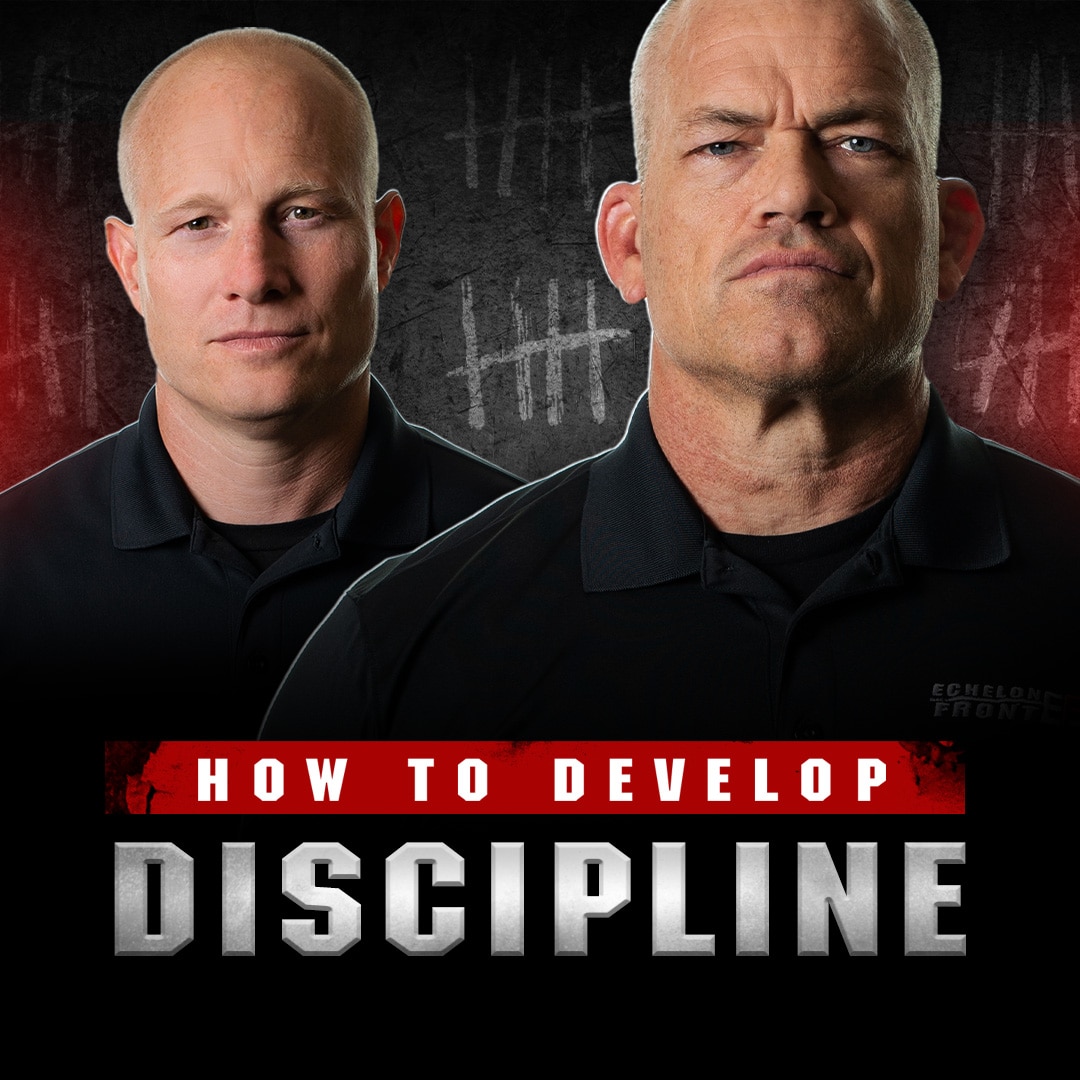In my role at Echelon Front, I have the opportunity to meet and build relationships with people who work in every sector of the economy. Medical professionals, construction professionals, lawyers, tech workers, first responders, stay-at-home parents, salespeople, and many more. Almost all these individuals tell me they would like more freedom in their lives. Financial Freedom. Freedom of Time. Freedom from Stress.
In a world filled with deadlines to meet, numbers that must be achieved, and meetings and events to attend, layered with ample opportunities for distraction and mindlessness, it can seem at times overwhelming to believe that you can achieve more freedom in the face of these obstacles.
Even in the face of these obstacles, it is possible to achieve freedom. How you do this is by becoming a more disciplined person. If you become disciplined with your budgeting and spending, you achieve greater financial freedom. If you build and adhere to a schedule and learn to say no to distractions, you achieve greater freedom of schedule. If you become disciplined at prioritizing tasks by importance and executing those tasks, you experience less anxiety around these tasks and, therefore, achieve greater freedom from stress. Contrary to popular conception, discipline is not about restriction or constraint. It’s about taking control of your life and achieving liberation.
Achieving self-discipline is simple but not easy. It is simple in theory because there are simple, tangible steps you can take to become disciplined. These steps, however, are anything but easy. It will be very difficult to build self-discipline because it requires you to shed old, destructive habits and replace them with new, constructive ones. This will be a difficult process, but the end result is more freedom in every single aspect of your life.
Practical Steps for Developing Self-Discipline
Define Your Why
What is your mission? What are you trying to achieve by developing Self-Discipline? What does winning look like? Whether it is more free time, less stress surrounding tasks, or more money in your bank account, it is crucial to understand your end goal. When things become difficult, which they will, you will utilize your Why to guide you. If you buy that shiny new object, you may feel good in the short term, but you understand it will lead to long-term, strategic failure if your desired end state is financial freedom. You must know your Why.
Wake Up Earlier
Start your day deliberately and wake up before the world does. This allows you to set the tone for your day. Use this extra time to achieve something. Get a workout in, order your schedule for the day, conduct a daily reflection, or start tackling your most important tasks. By choosing to rise earlier and start your day productively, you are setting the tone for the rest of your day and establishing a very important habit.
Establish a Battle Rhythm
Discipline thrives on routine. Establish your daily battle rhythm—a daily routine helps anchor your actions and keeps you on course. Whether it’s a morning workout, daily reflection, or evening planning session, consistency breeds discipline. In addition, creating a daily routine aids your ability to execute tasks by building focus and minimizing distractions.
Prioritize and Execute
Now that you are gaining time by waking up earlier and maintaining a daily routine take advantage of that free time. Identify the most important tasks and tackle them first. This is where understanding your Why comes into play. How you determine which of your tasks are the most important is by examining them through the lens of your Why. If your Why was freedom of schedule, then you need to tackle the task that will steal that precious time if not addressed immediately. If your Why was to take control of your health, then your most important task may be getting in a workout first thing in the morning before the chaos of the day can create barriers to your workout. Or your most important task may be establishing a meal plan and prepping your meals for the week so you do not succumb to unhealthy choices because you failed to prepare ahead of time. Regardless of your goal, the Why is what you use to be disciplined at Prioritizing and Executing. Know your Why, write down your prioritized tasks, and then execute.
Conduct a Daily Debrief
You will make mistakes, and you will occasionally fail to stay disciplined. Failure is an opportunity for learning and growth. By conducting a daily debrief, you are analyzing the reasons for your failure, not so you can beat yourself up, but so you can learn from those mistakes. If you failed to wake up early because you were just too exhausted, then you need to understand why you were so exhausted. Did you stay up too late? Did you neglect your healthy eating habits? Did you consume too much alcohol? If you understand the reason for the failure, you can put in processes to ensure you do not make the same mistakes. If you choose not to debrief and learn from these mistakes, you are bound to repeat them.
Take Extreme Ownership
When you fail, do not make excuses. Do not point the finger. There is only one person at fault. You. Taking ownership is empowering. It puts you in the driver’s seat to learn from and fix the mistake and, therefore, get better. Ownership is the bedrock of discipline. Your desire to develop self-discipline is your goal alone. A spouse or friend can be a great aid along the way, but in the end, it’s all on you. It’s Simple, but not easy. In fact, it will be exceptionally hard. The only way to succeed is by taking Ownership.
Conclusion
In the end, self-discipline isn’t just a means to an end—it’s a way of life. It is a choice you must make every single day. When the alarm goes off, you must get up. Every. Single. Time. Day after day. You can gain Self-Discipline, and you can also lose Self-Discipline. While it is very difficult to become a Disciplined person, it is very easy to become an undisciplined person. But by staying on the path, by taking ownership of self-discipline, you build new, better habits. These habits become aids that allow you to remain disciplined no matter the distractions or problems life throws your way. So, embrace the challenges to come. Embrace the struggle in the knowledge that you will emerge from the struggle better in every single way. For in the crucible of discipline, true freedom awaits.
Download this free Debrief resource and continue your growth with Extreme Ownership.




